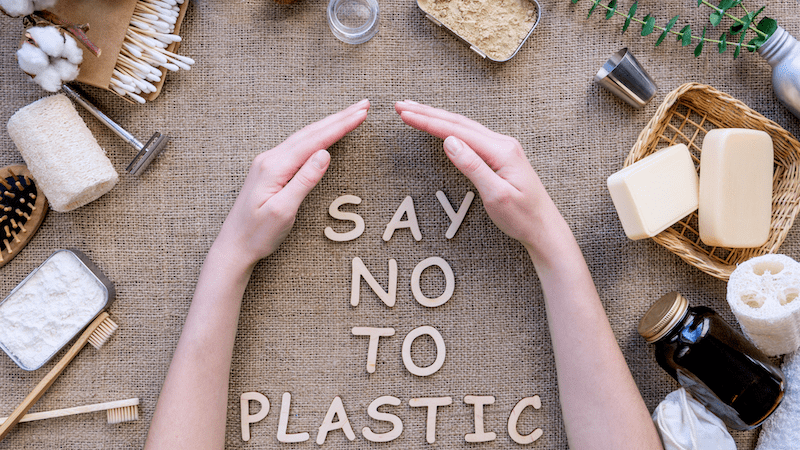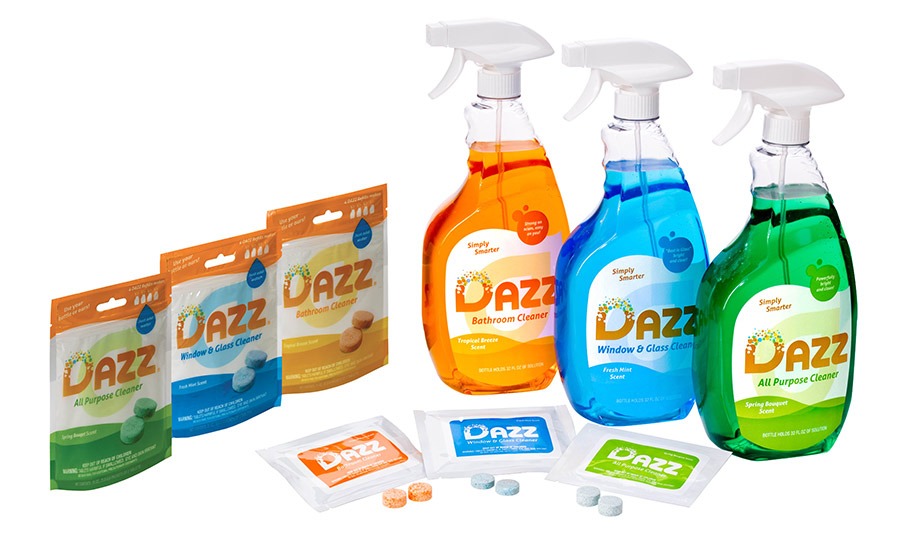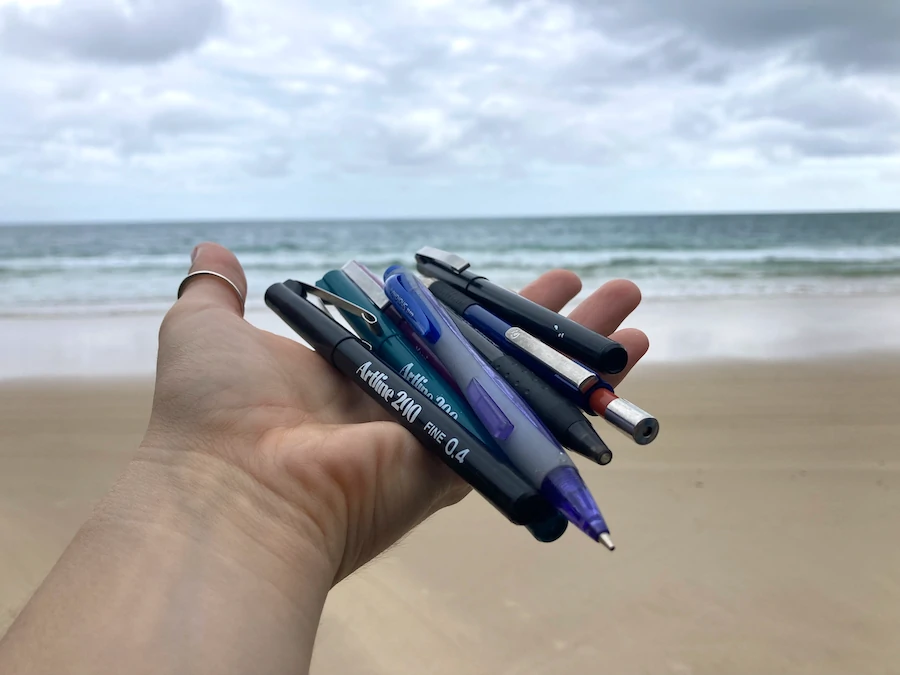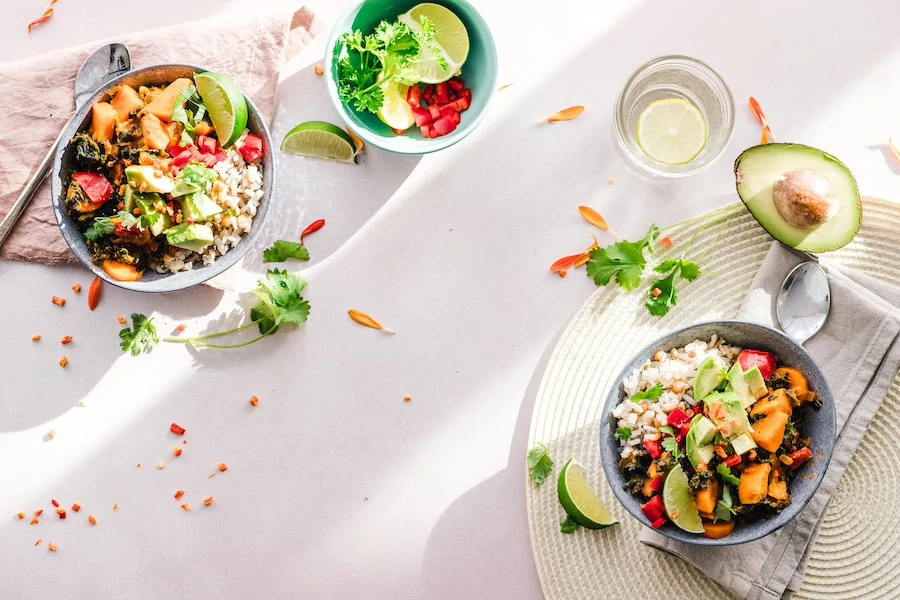
Plastic pollution is one of the most pressing concerns for eco-conscious individuals right now. Over the last few years, this concern has sparked a revolution in eco-materials and the way in which we clean has come under the microscope.
So, what steps can we take to achieve plastic-free cleaning? Go minimal so you buy fewer products, use natural homemade cleaners where possible, seek out eco-friendly cleaning products, buy zero-waste cleaning supplies, avoid microfiber materials, and use plastic-free garbage bags.
Those concerned about our growing issues with plastic pollution can help to mitigate their personal impact by following these simple steps. Cleaning doesn’t have to be plastic heavy.
6 Steps to Plastic-Free Cleaning
Changing the way we clean is one of the easiest and most effective solutions to minimizing our plastic use in our homes. Toxic cleaning products made with harsh chemicals and sold in heavy-duty plastic packaging can easily be swapped out for natural and homemade cleaning solutions.
1. Go Minimal
The less you have, the less you have to clean. The less you have to clean, the less cleaning products are required. When it comes to making the most positive impact on the planet, often the best solution is to consume less. Not buying any product at all is much better for the environment than buying an eco-friendly product.
Not buying a product saves all the resources that would have gone into that product through its lifecycle. The energy, labor, manufacturing, processes, transportation, and packaging are all eliminated when you decide not to buy a new product. Minimalism requires you to only buy the products you really need.
Minimalism is not just great for the environment either. There are other great benefits to be realized including saving money, time, and energy. This all helps to reduce stress.
2. Use Natural Homemade Cleaning Products Where Possible
The world is full of natural ingredients that can be used to clean your house. Using natural homemade recipes helps you to avoid buying branded cleaning products and significantly reduce the amount of plastic you’re buying. Here are the best natural cleaning products and their uses.
Bicarbonate Soda
Use as a natural deodorizer to remove smells from rooms, fridges, pet areas, carpets, and upholstery. You can even create a bicarbonate soda paste using water which will allow you to remove stains from your kitchen worktops, cookers, pots, saucepans, and even your kitchen sink.
Distilled White Vinegar
Use on alkaline substances to help dissolve scale, mold, and grease. It can also help remove coffee, rust, and tea stains.
Alcohol
The perfect natural disinfectant to help clean most surfaces in your home.
Cornstarch
Use to clean windows, polish furniture, and shampoo rugs or carpets.
3. Source Ethical Cleaning Products
If you have some serious cleaning that requires a bit more punch than the homemade products above you should make sure to buy ethical and eco-friendly products. Thanks to the increased awareness of the carbon footprint of our everyday products and the harsh chemicals used as ingredients, there are now a huge number of plastic-free and eco-friendly cleaning brands you can buy at your supermarket.
Some of these brands use plastic-free packaging or offer refillable bottles and services allowing you to reduce your plastic use even further.
DAZZ Cleaning Tablets

Looking for a simple method to reduce your plastic waste this Spring? Start by reusing your cleaning bottle. DAZZ Cleaning Tablets are a plastic-free method where the cleaning solution comes pre-made in a tablet form. Simply fill your empty spray bottle with warm water and add two DAZZ tablets. After letting the solution sit for 5 minutes you’re now ready to clean. When you run out, no more need to throw out your plastic cleaning bottle and replace it with a new one. That means one less plastic bottle added to the environment as waste and one less plastic bottle that needs to be produced.
The DAZZ Cleaning Tablets Whole House Starter Kit (link to storefront) has tablets made from plant and mineral-based ingredients that quickly dissolve to produce an all-natural and eco-friendly solution that’s alcohol and ammonia-free. They’ve got all your bases covered with a starter kit that includes tablets for all-purpose, bathroom, and even glass and window cleaning. Three reusable spray bottles are included along with six 32oz bottle refill packs, so you’ll be sure to get the most cleaning bang for your buck.
4. Use Zero-Waste Cleaning Supplies
To significantly reduce your plastic use at home start purchasing zero-waste cleaning supplies. You can now find zero-waste alternatives to many cleaning products and supplies that are usually sold in plastic packaging. Here are some great zero-waste alternatives that are now available.
- Glass dispensers for hand and dishwashing liquid.
- Bamboo dish scrubber.
- Metal or bamboo sponge.
- Non-microfiber dishcloths.
- Dishwashing powder in a refillable cotton bag.
- Bamboo multipurpose wipes.
- Natural fragrance bags.
5. Avoid Microfiber
Many modern cleaning supplies such as dishcloths or wipes are made with plastic microfibers. While this is not using plastic in a conventional sense, all those microparticles of plastic pollute our planet. In fact, 93% of bottled water tested for microplastics and researchers even discovered microplastics in high concentrations in the deep marine sediments of the Arctic.
You may not be able to see these microplastics but they’re having a huge negative impact on our environment. They’re also having an effect on marine life. Scientists have discovered microplastics in 114 aquatic species, many of which are then consumed by humans.
So, ditch the microfiber and instead, try using natural and reusable cotton cloths.
6. Use Plastic-Free Garbage Bags
Plastic bags used at the supermarket are quickly becoming a thing of the past and now, garbage bags are next in line to be eliminated. There are a few ways to collect trash without the use of plastic garbage bags.
Don’t Use One
Ok, so not feasible for everyone but if you can then you should. You could just wash the trash bin after each use saving hundreds of used plastic garbage bags each year. Did you know that 40% of household trash is food waste that doesn’t need to go into your trash can and can be thrown into a composter?
Use Newspaper
For your smaller bins that are dotted around the house, you can use old newspapers to line the bins. Once the bins are full, simply wrap into a ball and throw out.
Use Compostable Bio-based Liners
If you don’t mind the small extra expense you can now buy compostable bio-based liners made from plants. This means the bags will naturally decompose back into the ground with no harmful effect on the planet. Remember, a plastic garbage bag can take 100 years to fully decompose!
Make sure that you only buy compostable liners that are labeled “certified compostable” and “bio-based”.
Final Thoughts
When it comes to plastic-free cleaning there has never been a better time to get involved. The market is quickly shifting to help you reduce your plastic use and support the environment. Innovative ideas, design, and technology are allowing brands and consumers to ditch the plastic and join the “green revolution”.
If you’re feeling conscious about your personal plastic use then start taking advantage of the plastic-free alternatives available to you and start working towards plastic-free cleaning right now.



